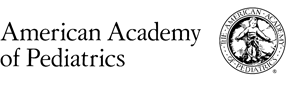
Bee, Wasp and Insect Stings
As children play outside more often during the summer, they can come into contact with stinging insects. Bees and wasps are probably the most common and can be found in flowers, shrubs, picnic areas and beaches. Bee and wasp stings cause immediate pain and rapid swelling. A few children have severe reactions, such as difficulty in breathing and swelling all over the body. Your child's reaction to a bite or sting will depend on her sensitivity to the particular insect's venom. While most children have only mild reactions, those who are allergic to certain insect venoms can have severe symptoms that require emergency treatment.
If your child disturbs a bee nest, get your child away from the nest as quickly as possible. An alarm pheromone is emitted at the base of a honey bee's sting, which other bees detect, making them more likely to sting your child.
Although insect bites can be irritating, they usually begin to disappear by the next day and do not require treatment by a doctor. If your child is stung by a bee, the most important action to take is to remove the stinger as quickly as possible.
The quick removal of a bee stinger will prevent a large amount of venom from being pumped into the skin. If the stinger is visible, remove it by gently scraping it off horizontally with a credit card or your fingernail. Avoid pinching the stinger with your fingers or tweezers. Pinching it can send even more venom into the skin. Bee stings and mosquito bites may be more swollen on the second or third day after the incident.
To relieve the itchiness that accompanies bites by mosquitoes, flies and fleas, apply ice to the area or calamine lotion freely onto any part of your child's body except the areas around his eyes and genitals. If your child is stung by a wasp or bee, remove the stinger then soak a cloth in cold water and press it over the area of the sting to reduce pain and swelling. Call your pediatrician before using any other treatment, including creams or lotions containing antihistamines or home remedies such as baking soda, meat tenderizer, tobacco juice, ammonia or vinegar. If the itching is severe, the doctor may prescribe cortisone ointment or oral antihistamines.
Keep your child's fingernails short and clean to minimize the risk of infection from scratching. If infection does occur, the bite will become redder, larger and more swollen. In some cases, you may notice red streaks or yellowish fluid near the bite. Have your pediatrician examine any infected bite, because it may need to be treated with antibiotics.
Since some children can have a severe reaction to bee or wasp stings, call for medical help immediately if your child has any of these other symptoms after being bitten or stung:
- Sudden difficulty breathing
- Weakness, collapse or unconsciousness
- Hives or itching all over the body
- Extreme swelling near the eye, lips or penis that makes it difficult for the child to see, eat or urinate
Some children with no other known allergies may have severe reactions to insect bites and stings. If you suspect that your child is allergy-prone, discuss the situation with your doctor. The doctor may recommend a series of hyposensitization injections. In addition, the doctor will prescribe a special kit for you to keep on hand for use if your child is stung.
It is impossible to prevent all insect bites, but you can minimize the number your child receives by following these guidelines.
- Avoid areas where insects nest or congregate, such as garbage cans, stagnant pools of water, uncovered foods and sweets, and orchards and gardens where flowers are in bloom.
- When you know your child will be exposed to insects, dress him in long pants and a lightweight long-sleeved shirt.
- Avoid dressing your child in clothing with bright colors or flowery prints, because they seem to attract insects.
- Don't use scented soaps, perfumes or hair sprays on your child, because they are inviting to insects.
Insect repellents are generally available without a prescription, but they should be used sparingly on infants and young children. The most effective insecticides include DEET (diethyltoluamide). Repellents appropriate for use on children should contain no more than 10 percent DEET because the chemical, which is absorbed through the skin, can cause harm. The concentration of DEET varies significantly from product to product, so read the label of any product you purchase. Repellents are effective in preventing bites by mosquitoes, ticks, fleas, chiggers and biting flies, but have virtually no effect on stinging insects such as bees, hornets and wasps. Contrary to popular belief, giving antihistamines continuously throughout the insect season does not appear to prevent reactions to bites.
© Copyright 2000 American Academy of Pediatrics
